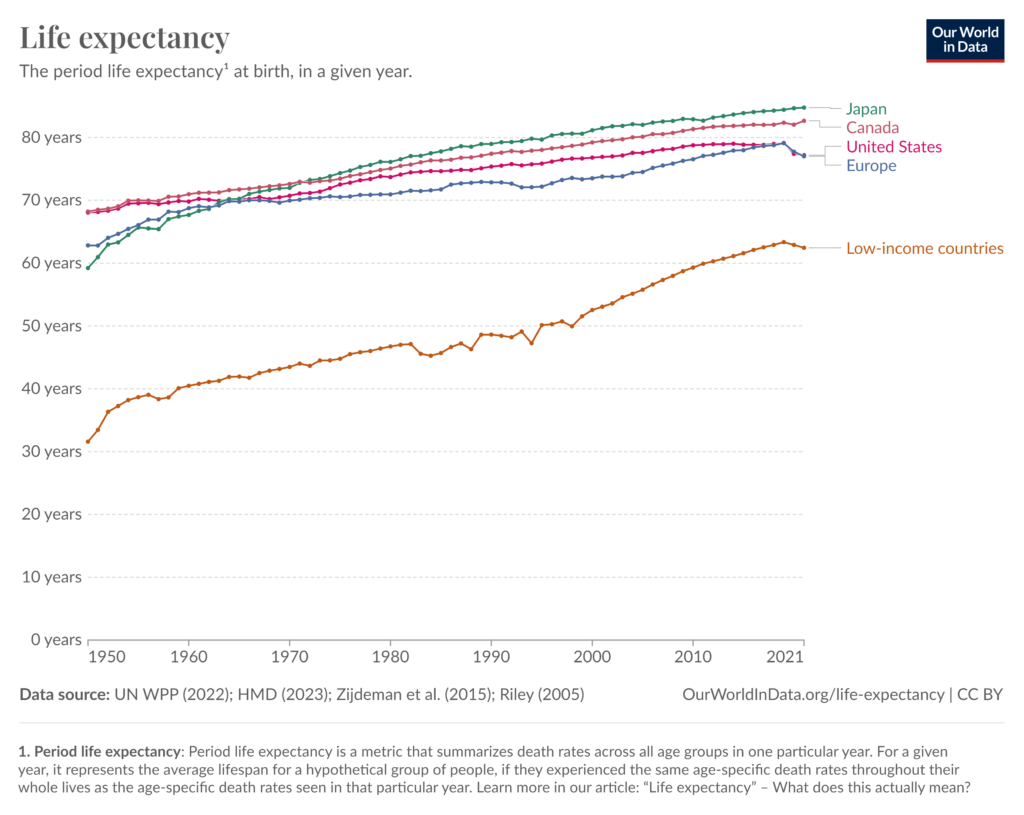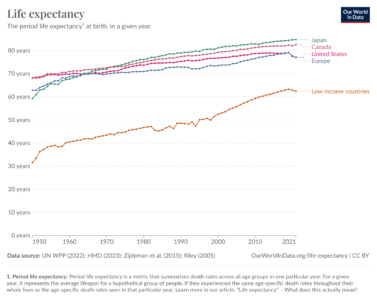Global Life Expectancy: The Power of Lifestyle and Supplementation
Welcome to Life-Gevity, where we are passionate about health and wellness. Our mission is to provide you with the latest insights and research on how to live a longer, healthier life. Today, we delve into the topic of global life expectancy and how lifestyle changes and supplementation can significantly impact it.
Understanding Global Life Expectancy
In the modern world, global life expectancy has seen a significant increase. As of 2024, the average life expectancy at birth for both sexes has improved from 46.5 years in 1950 to 71.7 years. This remarkable shift results from advances in medicine, public health, living standards, and most importantly, changes in lifestyle.
Life expectancy varies greatly around the world, with developed countries generally having higher life expectancies than developing countries. However, regardless of where you live, your lifestyle choices can have a significant impact on your life expectancy.
The Impact of Lifestyle on Life Expectancy
When it comes to health recommendations, we mostly know the drill: Exercise most days of the week; eat a varied and nutritious diet; maintain a healthy weight; get enough sleep; keep up with medical screenings for blood pressure, cholesterol, and blood sugar; don’t smoke; and limit alcohol to seven drinks a week. Reducing stress, improving relationships, and developing new interests or hobbies also contribute to healthy living.
Adopting new, healthier habits may protect you from serious health problems like obesity and diabetes. New habits, like healthy eating and regular physical activity, may also help you manage your weight and have more energy. After a while, if you stick with these changes, they may become part of your daily routine.
The Role of Supplementation
While a balanced diet is crucial, certain supplements can provide additional benefits to our health. Common supplements that may benefit your health include Vitamin B12, Folic acid, Vitamin D, Calcium, Vitamins C and E1. These supplements can help keep nerve and blood cells healthy, make DNA, prevent anemia, strengthen bones, promote bone health, and prevent cell damage1.
However, it’s important to remember that dietary supplements are not replacements for a diet of nutrient-dense foods2. They should be taken in addition to a healthy eating pattern, and only with the recommendation of your physician or dietitian2.
Mental Health and Life Expectancy
Mental health is a crucial aspect of overall health that often gets overlooked. Research shows that serious and persistent mental illness can result in patients losing up to four years of life compared to individuals without mental illness3. Some studies suggest that severe mental disorders can reduce life expectancy by 10 to 20 years412. This reduction is not only due to mental health issues but also due to the presence of comorbid physical health problems, such as cardiovascular diseases, respiratory diseases, metabolic diseases, infectious diseases, and cancer4.
Therefore, addressing mental health is just as important as addressing physical health when it comes to improving life expectancy. Mental health care should be an integral part of health care provision, and there should be more focus on managing both physical and mental health conditions4.
Conclusion
In conclusion, a lot of things can be improved through lifestyle and supplementation. By making conscious choices about our diet, exercise, sleep, and by considering the use of supplements, we can significantly improve our health and increase our life expectancy. Remember, the power to live a long and healthy life lies in your hands.
Learn more
1 studyfinds.org 2 ox.ac.uk 3 psychcentral.com 4 annals-general-psychiatry.biomedcentral.com 5 qbi.uq.edu.au 6 gettyimages.com


